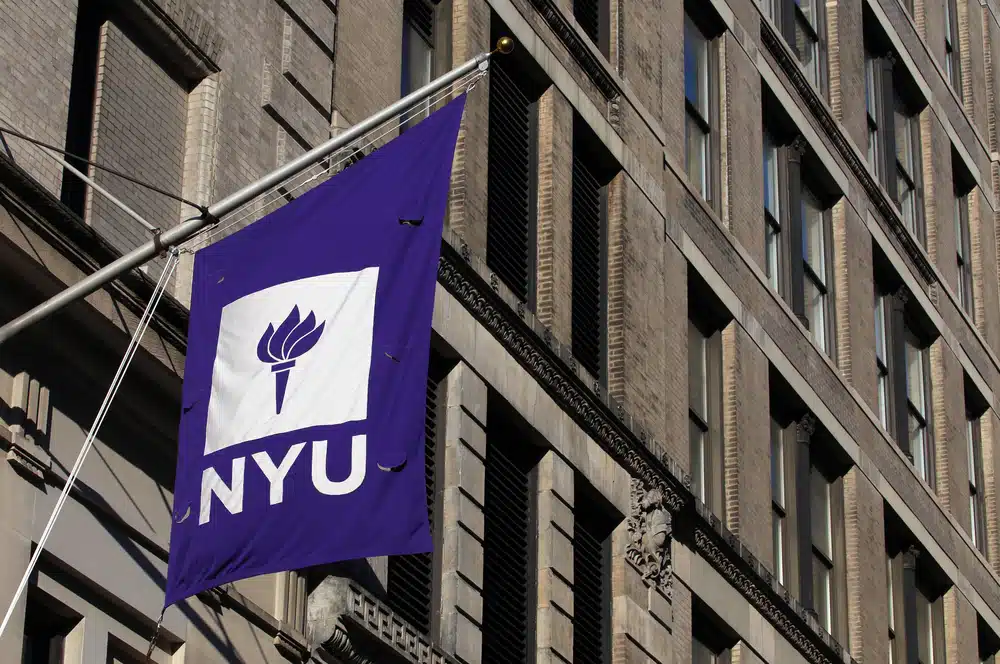NYU Early Decision and Regular Decision Notification Dates Class of 2028
Understanding the NYU Early Decision and Regular Decision notification dates for the Class of 2028 is key to planning your college journey. As you navigate the complexities of college admissions, knowing these dates can be a game-changer in your application strategy.
Whether you’re setting your sights on early admission or weighing your options for regular decisions, timing is everything. This blog post is your guide to mastering the timelines and making informed choices. Stay ahead in your college admissions journey by keeping these crucial dates in mind.
NYU Early Decision 1 Notification Date Class of 2028
The Early Decision 1 (ED1) option at New York University (NYU) represents a key decision for students who are certain that NYU is their top choice for higher education. Choosing ED1 shows a commitment to attend if accepted, a fact you must carefully consider.
When Does NYU Early Decision 1 Come Out?
For applicants to the Class of 2028 at NYU, the notification date for Early Decision 1 is set for December 15, 2023. This specific date offers you a clear timeline, enabling precise planning for your next steps in the college application process. Coming before the winter holidays, this date allows you to enjoy your break with a clear understanding of your admission status.
The ED1 option at NYU is a strategic choice in the broader context of college admissions. By opting for a binding decision, you show the admissions committee your strong interest in NYU. This choice is often seen favorably, indicating your enthusiasm and desire to join the NYU community. For the university, ED1 applications aid in early forecasting of the upcoming class’s composition and diversity.
Moreover, selecting ED1 requires a high level of organization and readiness. As the ED1 deadline typically comes earlier than the Regular Decision and some Early Decision 2 deadlines, you must prepare your standardized test scores, letters of recommendation, essays, and other application components well in advance. This calls for a proactive approach, often starting in your junior year of high school.
What Time Does NYU Early Decision 1 Come Out?
NYU has not specified an exact time for releasing Early Decision 1 results, but historically, decisions have been released at various times throughout the day. You should closely monitor your email and NYU’s applicant portal around December 15. Managing your expectations and staying patient is important, as the release time can vary.
The uncertainty about the decision release time can be a source of anxiety. To manage this, engage in activities that keep you occupied and relaxed on decision day. Whether it’s spending time with family and friends, engaging in hobbies, or taking a day off, having a plan can help manage any anxiety associated with waiting for the decision.
The anticipation of Early Decision results also highlights the importance of having a well-thought-out backup plan. While you may be passionate about attending NYU, it’s critical to prepare for other possibilities. This could involve applying for Regular Decision at other institutions or considering gap year options. A backup plan ensures you are ready for any outcome and can confidently continue your educational journey, regardless of NYU’s decision.
The Early Decision 1 option at NYU requires a significant commitment from you, signifying a strong desire to be part of the NYU community. Marking December 15 on your calendar is crucial, and you should be well-prepared and organized in your application process.
While the exact time of decision release remains unknown, this period is an opportunity to reflect on your journey, manage expectations, and prepare for the next steps. Remember, this process is not just about getting into NYU but also about personal growth and self-awareness.
NYU Early Decision 2 Notification Date Class of 2028
New York University (NYU) tailors its application options to meet the diverse needs of its applicants. It offers an Early Decision 2 (ED2) option with a notification date of February 15. This option suits you well if your certainty about NYU as your top choice grows stronger during your senior year. ED2 differs from Early Decision 1 (ED1), as it allows you more time to consider your options, visit campuses, and solidify your college preferences.
When Does NYU Early Decision 2 Come Out?
If you apply to NYU through the Early Decision 2 pathway for the Class of 2028, expect the notification date to be around February 15, 2024. This timeline is perfect if NYU emerges as your dream school later in your college application journey. It’s also a great opportunity if you face deferral or rejection from your first-choice school during the ED1 or Regular Decision rounds. Choosing ED2 is a strategic move that lets you show your strong interest in NYU while giving you enough time to make an informed decision.
If NYU accepts you under the ED2 plan, you must withdraw all other college applications and commit to attending NYU. This binding agreement requires you to be sure about your choice and ready to commit if accepted. NYU’s ED2 underscores the university’s aim to admit students who are truly excited about joining their community.
What Time Does NYU Early Decision 2 Come Out?
NYU has not specified an exact time for the ED2 decision announcement. You should be ready for news at any time on February 15. In the past, universities have varied in their notification times, with some releasing decisions early in the morning while others wait until late afternoon or evening. This timing depends on each university’s internal processes and the volume of applications they receive.
For NYU, the absence of a specific announcement time means you should regularly check your email and the NYU applicant portal throughout the day. Ensure you have reliable internet access and periodically check your email, as universities typically notify you by email when decisions are available online. Staying updated in real-time allows you to immediately start planning your next steps.
While waiting for the decision, it’s natural to feel a mix of excitement and anxiety. Use this time to reflect on your journey and the hard work and dedication you’ve put into your application. Regardless of the outcome, reaching this point is an accomplishment, marking months or even years of planning and effort.
In the meantime, stay committed to your current activities and academics. Maintaining strong performance is crucial, especially if you find yourself waitlisted, as your recent records will showcase your ongoing commitment and excellence.
Also, while ED2 decisions are binding, it’s wise to have a backup plan. Continue exploring other college options and understand what to do if NYU does not admit you. Having a plan B provides security and preparedness for any outcome.
Finally, rely on your support system during this period. Family, friends, or school counselors can offer emotional support and practical advice, helping you stay focused and balanced as you navigate this phase of your educational journey.
NYU’s Early Decision 2 option, with its February 15 notification date, presents a unique chance for applicants who realize later in the application cycle that NYU is their first choice. Although the exact time of the decision announcement remains unknown, staying prepared, engaged, and supported can help you manage the anticipation and ensure you’re ready for any outcome. Reaching this stage is a testament to each applicant’s hard work and dedication, marking a significant milestone in their educational path.
NYU Regular Decision Notification Date Class of 2028
Regular Decision at NYU offers you a non-binding option when applying. This choice contrasts with Early Decision, as it doesn’t bind you to attend if accepted, giving you the flexibility to consider all your options. NYU has set a specific notification date for Regular Decision applicants.
This strategic scheduling aligns with the national response date of May 1st, allowing you plenty of time to compare offers from different universities, visit campuses, and make an informed decision about your future. Understanding the Regular Decision process’s nuances is crucial as you plan your college journey.
When Does NYU Regular Decision Come Out?
NYU’s notification date for the Class of 2028, under the Regular Decision pathway, is set for April 1, 2024. This date aligns with many other universities, providing a uniform timeline for college admissions. This uniformity helps you plan your applications to various institutions more effectively.
NYU’s Regular Decision process is highly competitive, attracting thousands of applications from around the world. The admissions committee thoroughly reviews each application, considering academic achievements, personal essays, and extracurricular involvements. So, while waiting for the decision, staying engaged in your current academic and extracurricular activities is beneficial.
Regular Decision notification also plays a crucial role in your financial planning. Financial aid offers typically accompany admission decisions, giving you a chance to assess the affordability of attending NYU compared to other universities. Understanding this timeline can also help you plan potential campus visits. A visit to the campus can significantly influence your final college choice, as it allows you to experience NYU’s campus culture, meet faculty and students, and get a feel for the university’s environment.
What Time Does NYU Regular Decision Come Out?
In 2023, NYU released its Regular Decision results around 4 p.m. ET. While they don’t have a specific time for 2024, you can reasonably expect a similar timeframe. This timing usually coincides with the end of the school day in many parts of the United States, which is convenient for you if you’re a high school student waiting for your decision.
However, if you’re an international applicant, adjust your expectations for the time zone differences. The announcement time can be a moment filled with anticipation and anxiety. Having a support system, whether family, friends, or school counselors, can be valuable during this significant moment.
The timing of the decision release is not just a detail; it reflects NYU’s commitment to a fair and equitable process for all applicants. By releasing decisions at a time when most applicants can access them, NYU ensures that no group of students has an unfair advantage. The decision release time often triggers a flurry of activity on social media and college forums as students share their outcomes and seek support from peers in the same process. This shared experience is a memorable part of your college application journey.
As you await NYU’s decision, managing your expectations and preparing for any outcome is crucial. Remember, college admissions decisions don’t define your worth or potential. Every applicant has unique strengths, and a denial from one institution doesn’t diminish those qualities. In the event of an unfavorable decision, having a plan B is important. This might mean considering other colleges that have offered admission, exploring gap year options, or planning to reapply in the future.
The Regular Decision notification date for NYU’s Class of 2028 marks a pivotal moment for thousands of applicants worldwide. It’s the culmination of years of hard work and the start of a new chapter in your educational journey. Whether the decision is an acceptance, waitlist, or denial, it’s a significant milestone in the college admissions process. The period leading up to and following April 1st is a time for reflection, anticipation, and decision-making. Regardless of the outcome, it’s a learning experience that contributes to your personal growth and development.
Is it Easier to Get into NYU Early Decision?
The Early Decision (ED) process at New York University (NYU) offers a significant pathway for high school students aiming to secure a spot at one of the world’s most prestigious universities. Many perceive Early Decision as having higher acceptance rates compared to Regular Decision. This belief arises because ED applicants demonstrate a strong commitment to attending NYU, clearly signaling their first choice to the admissions committee. However, it’s essential to delve into the intricacies and implications of this admission route before deciding if it’s right for you.
Understanding Early Decision at NYU
NYU’s Early Decision program is split into two rounds: ED1 and ED2. Both options enable you to show NYU as your first-choice university. ED1 usually has an early November deadline. ED2, however, sets its deadline in early January. This split provides flexibility and an additional opportunity for you if NYU becomes your top choice later in the application cycle.
In Early Decision, if NYU accepts you, you must commit to attending and withdraw all other college applications. Only make this serious commitment if NYU is unquestionably your top choice. The binding nature of Early Decision appeals to universities as it allows them to secure a portion of their incoming class early, increasing their yield rates, which are the percentage of admitted students who enroll.
The Acceptance Rate Factor
Statistics often show a higher acceptance rate for Early Decision applicants than for Regular Decision. This trend is not exclusive to NYU but is seen across many selective universities. The reasons are multifaceted. Firstly, the ED applicant pool is often smaller yet more competitive. These applicants are usually more organized, confident in their choices, and have strong academic profiles, aligning their applications with NYU’s values and expectations.
However, remember that a higher acceptance rate does not necessarily make admission easier. The quality of the ED applicant pool is often high, with students exhibiting excellent academic achievements, impressive extracurricular accomplishments, and a clear fit for NYU’s community and values. The competition in ED is intense, and NYU closely scrutinizes applications for genuine interest and compatibility.
Impact of Demonstrated Interest
One key aspect that makes Early Decision attractive to universities like NYU is the demonstrated interest. By applying for ED, you are clearly stating that NYU is your first choice. This level of interest is appealing to admissions offices, as it often translates into a committed and engaged student body. Demonstrated interest can significantly influence admissions decisions as universities seek to build a community of enthusiastic and dedicated students.
Strategic Considerations for Applicants
From a strategic standpoint, applying to ED can be beneficial if you are certain about NYU and have a strong application ready by the ED deadline. It’s especially advantageous if you have specific reasons for choosing NYU, such as its programs, location, or alignment with your career goals. However, consider financial aid carefully, as committing to NYU through ED means accepting the financial aid package offered without the ability to compare it with other schools.
If you need substantial financial aid, this is an important consideration. NYU does offer financial aid to ED applicants, but you forfeit the chance to compare offers from other institutions in the ED process. Therefore, make sure you fully understand your financial situation and NYU’s financial aid policies before opting for Early Decision.
The Role of ED in Diversifying the Class
NYU, like many universities, strives to build a diverse and dynamic student body. The Early Decision process contributes to this goal. By accepting a portion of the class through ED, NYU shapes its incoming class with some certainty. This approach gives the admissions office more flexibility in the Regular Decision process to ensure a varied mix of talents, backgrounds, and perspectives.
While the Early Decision route to NYU may show a higher acceptance rate, it is not necessarily an easier pathway. It requires a thoughtful strategy, a thorough understanding of NYU’s offerings, and a clear commitment to joining the NYU community. You should carefully weigh the potential benefits of a higher acceptance chance against the binding commitment and financial implications. Ultimately, deciding to apply Early Decision should align with your academic, professional, and personal goals, making it a deliberate choice in your journey to higher education.
Why Does NYU Have Two Early Decisions?
Choosing when to apply to New York University (NYU) can be as crucial as the application itself. If you’re navigating your college admissions journey, it’s essential to understand the differences and benefits of NYU’s two Early Decision (ED) options, ED1 and ED2. These options cater to applicants with varying levels of certainty about their college choices and different timelines.
Early Decision 1 (ED1) at NYU
ED1 suits you if NYU is your clear first-choice university early in your senior year of high school. Typically, students who choose ED1 have thoroughly researched and visited various universities and are certain that NYU aligns with their academic, social, and career goals. By choosing ED1, you show NYU your strong commitment to attending, which can favorably impact the admissions process.
Applying ED1 strategically lets you receive your admission decision earlier. This early notification eases your mind, allowing you to plan your future without the stress of waiting for regular decision announcements. If you’re successful, you can withdraw applications from other schools, saving both time and resources. Remember, ED1 is a binding agreement; if admitted, you’re committed to attending NYU and must withdraw all other college applications.
NYU’s admissions statistics often reveal a higher acceptance rate for ED1 applicants compared to Regular Decision applicants. This trend, common in many competitive universities, reflects the commitment ED1 applicants show to NYU, a factor admissions committees highly value. You should only apply for ED1 if you’re certain NYU is your top choice and if you’ve considered the financial aspects, as you won’t know your financial aid offer until after acceptance.
Early Decision 2 (ED2) at NYU
ED2, a relatively new option in the college admissions landscape, is gaining popularity. It’s designed for students who need more time to decide on their first-choice university or who might have identified NYU as their preferred choice later in the application cycle.
The main advantage of ED2 is the extra time it gives you to strengthen your application. This could mean improving standardized test scores, adding significant extracurricular achievements, or refining personal essays. Often, ED2 applicants include those who were not admitted to their first-choice school through ED1 elsewhere and have since decided NYU is their new top choice.
Like ED1, ED2 is a binding commitment. If you’re accepted through ED2, you must enroll at NYU and withdraw applications from other colleges. This option suits you if, after more thought and possibly early responses from other universities, you conclude NYU is your preferred destination.
ED2 also benefits NYU’s admissions office. It allows them to fill specific academic or community niches that the ED1 group might not have completely filled, shaping the incoming class with a mix of passionately committed students who have different reasons for choosing NYU.
Choosing Between ED1 and ED2
Deciding whether to apply ED1 or ED2 at NYU is a significant choice that requires careful consideration. Assess your readiness in terms of your application’s strength and your certainty about NYU as your first choice. Also, consider the financial aspect, as ED1 and ED2 do not allow you to compare financial aid packages from multiple universities.
If NYU is your top choice and your application is strong by the ED1 deadline, applying for ED1 can be an excellent choice. It offers the earliest possible decision and shows a high level of interest and commitment to NYU. Alternatively, ED2 is ideal if you discover your preference for NYU later or want additional time to enhance your application.
In conclusion, NYU’s two Early Decision options are thoughtfully designed to accommodate different types of applicants. Both ED1 and ED2 offer the chance to show your commitment to NYU, but on timelines that suit your individual needs and circumstances. Understanding these options and choosing wisely can significantly impact your college admissions journey, making the process less stressful and more tailored to your preferences and situation.
How Does NYU Notify Acceptance?
Understanding how New York University (NYU) communicates acceptance decisions is crucial for applicants navigating the application process. NYU uses a multi-channel approach to promptly and efficiently inform each applicant about their admissions status.
This process showcases NYU’s commitment to transparency and clarity in communicating with prospective students. As the number of applications grows each year, NYU has streamlined its notification system to handle the volume effectively, ensuring timely information delivery to each applicant.
Emails: A Primary Notification Method
NYU primarily uses email to notify applicants of their acceptance. Once NYU makes a decision, they send an email notification to the address you provided in your application. This email usually contains basic information about the decision and instructions on accessing the decision letter through the NYU applicant portal.
NYU crafts these email contents carefully to be clear and concise, respecting the emotions of applicants eagerly awaiting their results. You should regularly check the email account you used for your application, including spam or junk folders, as important emails can sometimes be mistakenly filtered by email providers.
Updates on the Applicant Portal
Another vital channel for NYU’s acceptance notifications is the applicant portal. After receiving the email notification, you should log in to this portal, where you can view your official decision letter. The NYU applicant portal is a personalized space where you can manage your application, view updates, and eventually access your admission decision. The portal’s user-friendly and secure design requires you to log in with unique credentials, ensuring that the decision remains confidential and accessible only to you.
In the portal, the decision letter provides detailed information about your acceptance, including any conditions attached, like maintaining a certain academic standard or submitting final transcripts. For accepted students, the portal becomes an essential tool for the next steps in their journey, offering resources and instructions for enrollment, housing applications, orientation programs, and other critical information for transitioning to student life at NYU.
Timeliness and Organization of NYU’s Notifications
NYU is known for its timely and organized acceptance notifications. By adhering to a well-planned schedule, NYU allows applicants to plan their next steps, whether accepting NYU’s offer, considering other options, or applying for financial aid. This punctuality is crucial, as students often apply to multiple institutions and need to make informed decisions within each university’s deadlines.
NYU also ensures its notifications are clear and straightforward. The language in both emails and portal updates aims to avoid confusion about your status. Clarity is crucial, as the admission decision is a significant moment in the lives of prospective students, often accompanied by excitement, relief, and anxiety.
Furthermore, NYU’s admissions office is ready to handle inquiries from applicants regarding their decision. Staff members provide additional information and guidance in case of any uncertainties. This support level is part of NYU’s commitment to making the admissions process as stress-free as possible.
The Process of Notifying Acceptance at NYU
Notifying acceptance at NYU is more than just an administrative task; it’s an integral part of the university’s approach to welcoming new members into its community. By combining emails and the applicant portal, NYU ensures that each applicant receives their decision in an accessible and secure format. The efficiency and clarity of this process reflect the university’s respect for your efforts and anticipation, making it a crucial aspect of the overall NYU admissions experience.
With an understanding of the NYU Early Decision and Regular Decision notification dates for the Class of 2028, it becomes essential to explore further how NYU’s acceptance notification method reflects the university’s commitment to a clear, efficient, and student-focused admissions journey.
By familiarizing yourself with this process, you can navigate your NYU journey confidently, knowing that you will be well-informed at every step. Whether through timely emails or detailed updates on the applicant portal, NYU’s communication channels guide applicants smoothly through the excitement and anticipation of the admissions season.
How to Strengthen Your NYU Application
Securing a spot in NYU’s Class of 2028 is a competitive challenge, and simply meeting deadlines won’t be enough. To make your application stand out, you need to build a profile that resonates with NYU’s principles. This means showing not only your academic strength but also your unique personality and potential contributions to their vibrant community.
A compelling application includes more than grades and test scores; it shows a well-rounded profile with your involvement in extracurricular activities, leadership qualities, and a genuine passion for NYU’s diverse environment.
1. Academic Excellence and Rigor
As a prestigious institution, NYU emphasizes academic excellence. But it’s not just about high grades and test scores. NYU looks for students who take on challenges. Enrolling in rigorous courses like Advanced Placement (AP) or International Baccalaureate (IB) classes shows your readiness to push your intellectual limits. You should maintain a strong GPA and also demonstrate that you’re willing to tackle demanding courses. Remember, NYU’s admissions officers seek students who can excel in a challenging academic environment.
2. Standardized Test Scores (If Applicable)
NYU’s test-optional policy doesn’t mean test scores aren’t important. If your SAT or ACT scores are strong, including them can boost your application, especially when paired with solid academic performance. However, lacking test scores won’t disadvantage you, thanks to NYU’s holistic review process.
3. Extracurricular Involvement and Leadership
NYU values students who show leadership and commitment in their extracurricular activities. Being actively involved in sports, the arts, community service, or clubs is more impactful than a long list of minor activities. Demonstrate your leadership by organizing events or making significant contributions to projects or clubs. NYU admires students who can lead, influence, and collaborate.
4. Personal Essays: Your Voice and Story
Your personal essays are crucial. They let you share your individuality and show the admissions committee who you are beyond your grades and test scores. Write compelling stories that showcase your unique experiences, the challenges you’ve overcome, or the lessons you’ve learned. Make sure your essays are authentic and reflective, and clearly express your interest in NYU and how you fit with its values. Mention specific NYU programs, professors, or opportunities that align with your goals to make your application more personal.
5. Demonstrated Interest in NYU
Showing your interest in NYU can subtly enhance your application. Express this in your essays by explaining why NYU is the right choice for you. Talk about specific NYU programs, professors, or opportunities that match your academic interests and career aspirations. Visiting the campus, attending NYU admissions events, or connecting with current students or alumni can also demonstrate your genuine interest in becoming part of the NYU community.
6. Letters of Recommendation: Personal and Academic Insights
Letters of recommendation offer an outside perspective on your academic and personal qualities. Choose recommenders who know you well and can discuss your character, achievements, and potential. Ideally, these should be teachers who have taught you core academic subjects and watched you grow. A strong letter of recommendation adds depth to your academic record and gives insights into your personality, work ethic, and interactions with peers and teachers.
7. Portfolio or Supplemental Material (If Applicable)
For certain programs, a portfolio or supplemental material is crucial. Your portfolio should highlight your best work and reflect your skills, style, and passion in your field. Follow NYU’s guidelines for portfolios to present your work effectively.
8. Community Service and Global Awareness
NYU values global perspectives and community involvement. Participating in community service, especially in projects with long-term commitments or significant impacts, can strengthen your application. Showing your understanding of global issues and a desire to contribute to global solutions aligns with NYU’s mission.
9. Diversity and Cultural Competence
NYU takes pride in its diverse community. Sharing your experiences with different cultures or your efforts to promote inclusivity can benefit your application. This could include participating in multicultural clubs, speaking multiple languages, having international experiences, or working on initiatives to promote equity in your community.
A successful NYU application for the Class of 2028 combines academic rigor, test scores (if applicable), leadership in extracurriculars, engaging personal essays, demonstrated interest, impactful recommendations, and, if relevant, outstanding portfolios or supplemental materials. This holistic approach, along with showing your global awareness and cultural competence, will improve your chances of joining NYU’s esteemed community.
Preparing for NYU Decision Day: Tips and Strategies
With the announcement of NYU’s Early Decision and Regular Decision notification dates for the Class of 2028 on the horizon, it’s natural for a blend of anticipation and anxiety to set in. It’s important to approach this day with a balanced mindset and a strategic plan. During this period, you can prepare for the outcome and explore broader educational landscapes and opportunities. Here are some essential tips and strategies to help you navigate this crucial time effectively.
1. Understand the Decision Day Process
Reducing anxiety starts with understanding the process leading up to decision day. NYU typically notifies applicants of their decisions via email or through their application portal. Make sure you have access to all your login credentials and set up your email notifications correctly to avoid any delays in receiving the decision. Familiarize yourself with the portal beforehand to avoid last-minute confusion.
2. Manage Stress
As decision day gets closer, it’s normal for stress levels to increase. To alleviate stress, engage in physical activities like jogging or yoga, which are great for reducing stress. Additionally, spending time on hobbies or with friends and family can offer a healthy distraction. Practices like mindfulness and meditation can also help maintain a calm and focused state of mind.
3. Explore Alternatives
While waiting for NYU’s decision, it’s smart to look into other universities and programs. This isn’t just about having a backup plan; it’s also an opportunity to find programs that might align better with your interests and goals. Researching different institutions, their campus cultures, academic offerings, and extracurricular opportunities can open up new avenues for you.
4. Seek Scholarship Opportunities
Now is also an ideal time to look for scholarship opportunities. Many organizations offer scholarships based on criteria like academic achievement, community service, artistic talents, or specific career interests. Applying for scholarships can potentially ease financial burdens and enhance your academic and professional profile.
5. Network with Current Students and Alumni
Connecting with current NYU students and alumni can give you valuable insights into what to expect if you get accepted. You can network through social media platforms, university forums, or alumni associations. Engaging with these individuals can provide a real-life perspective on NYU’s academic and social environment and offer tips for navigating your first year effectively.
6. Plan for Decision Day
Think about how you want to experience decision day. Decide where and with whom you want to be when making your decision. Some people prefer having family or friends around, while others might choose a private setting. Remember, the response—whether it’s an acceptance, a waitlist, or a rejection—does not define your worth or future success.
7. Handle Different Outcomes
If you get accepted, celebrate your achievement and start planning your next steps, like housing and enrollment procedures. If you’re waitlisted, look into the waitlist process and consider sending a letter of continued interest. If you face rejection, allow yourself time to process the disappointment, but also remember that many successful people have overcome similar challenges. This could be a chance to explore other great universities or consider gap year options.
8. Consider Gap Year Options
A gap year might be a beneficial choice for some. You can use this time for internships, travel, volunteering, or other personal development activities. A gap year can offer valuable life experiences and clarity about your future academic and career paths.
9. Prepare for the Next Steps
If you’re accepted, start preparing for your journey at NYU. Get to know the course offerings, housing options, and student life. It’s also a good time to connect with future classmates, possibly through social media groups or pre-orientation programs.
1o. Reflect on Personal Growth
Take a moment to reflect on your journey to this point. The college application process teaches resilience, adaptability, and self-awareness. Regardless of the outcome, you’ve likely developed skills and insights that will serve you well in the future.
Preparing for NYU’s decision day involves more than just waiting for the outcome. It’s a chance for personal growth, exploring alternatives, and planning for your future. With a proactive and positive approach, you can navigate this period with less stress and more confidence, ready to embrace the next chapter of your educational journey.
How Do You Guarantee Your NYU Acceptance?
Achieving admission to New York University (NYU) is a dream for many, but it requires more than hope. You need a strategic plan, careful preparation, and an understanding of NYU’s specific criteria for candidates. Let’s explore the key factors that can significantly boost your chances of getting into NYU.
NYU’s admissions process, like that of many selective universities, is both highly competitive and holistic. No guaranteed methods exist for securing acceptance, but focusing on several key areas can improve your chances.
Academic Excellence and Rigor
Your academic record is a crucial part of your application. NYU seeks students who have excelled in high school and challenged themselves with advanced-level classes.
- Strong Grades in Challenging Courses: Earning high grades in Advanced Placement (AP), International Baccalaureate (IB), or other advanced courses will significantly strengthen your application. NYU admissions officers look for students who demonstrate an ability to handle increasingly challenging material.
- Standardized Test Scores: Though NYU has a test-optional policy, submitting strong SAT or ACT scores can benefit you, especially if they complement your academic achievements. If you choose to submit scores, aim for those that meet or exceed the median of NYU’s previously admitted students.
Engagement in Extracurricular Activities
NYU values students who show passion, leadership, and commitment outside the classroom. Your involvement in extracurricular activities is a crucial aspect of your application.
- Depth Over Breadth: Quality matters more than quantity in extracurricular activities. NYU prefers depth and commitment in a few areas rather than a long list of superficial involvements. Leadership roles, substantial contributions to projects or clubs, and consistent commitment can distinguish your application.
- Alignment with NYU’s Values: Choose extracurricular activities that reflect NYU’s values and your intended field of study. For example, if you’re eyeing NYU’s renowned Tisch School of the Arts, involvement in drama clubs, local theater productions, or art exhibitions can show your passion and suitability for this field.
Crafting Compelling Personal Essays
Your personal essays allow you to speak directly to the admissions committee. A well-written essay offers a glimpse into your personality, aspirations, and fit with NYU.
- Authenticity and Self-Reflection: Be authentic in your essays. They should reflect your true self, showcasing your unique perspective, experiences, and aspirations. Focus on what sets you apart rather than on generic statements.
- Telling Your Story: Your essay should capture your character and motivation. It should also show why you are a good fit for NYU, linking your goals and interests to what the university offers.
Letters of Recommendation
Strong letters of recommendation from teachers, counselors, or mentors can provide insights into your character, achievements, and potential.
- Selecting the Right Recommenders: Choose individuals who have closely observed your academic and personal growth and can cite specific examples of your strengths and achievements.
- Guiding Your Recommenders: Though you should never write your own recommendation letters, giving your recommenders a summary of your achievements, goals, and reasons for choosing NYU can help them write more personalized and effective letters.
Understanding NYU’s Culture and Programs
Show a deep understanding of NYU’s culture, values, and academic programs in your application to enhance your chances of admission.
- Research and Network: Attend NYU information sessions, connect with current students or alumni, and thoroughly research the programs NYU offers. This will help you decide if NYU is the right fit for you and enable you to tailor your application to show your genuine interest in and fit with the university.
- Program-Specific Requirements: For certain programs, such as those in the arts, you might need to submit additional portfolios or complete auditions. Make sure you understand and meet these additional requirements to the best of your ability.
While there is no surefire formula for gaining acceptance into NYU, a strong application showcases academic excellence, meaningful extracurricular engagement, compelling essays, supportive recommendations, and a clear understanding of and alignment with NYU’s values and offerings. By focusing on these areas, you can greatly enhance your chances of joining the vibrant and diverse community at New York University.
Conclusion
As the NYU Early Decision and Regular Decision notification dates for the Class of 2028 approach, applicants are encouraged to stay informed, prepared, and hopeful. Remember, regardless of the outcome, the experience of applying itself is a valuable step in your educational journey. It is also a time to reflect on your accomplishments and the unique qualities you bring to any academic community. Finally, take this time to explore all your options and plan for a bright future, knowing that your path to success may take many exciting forms.

















































